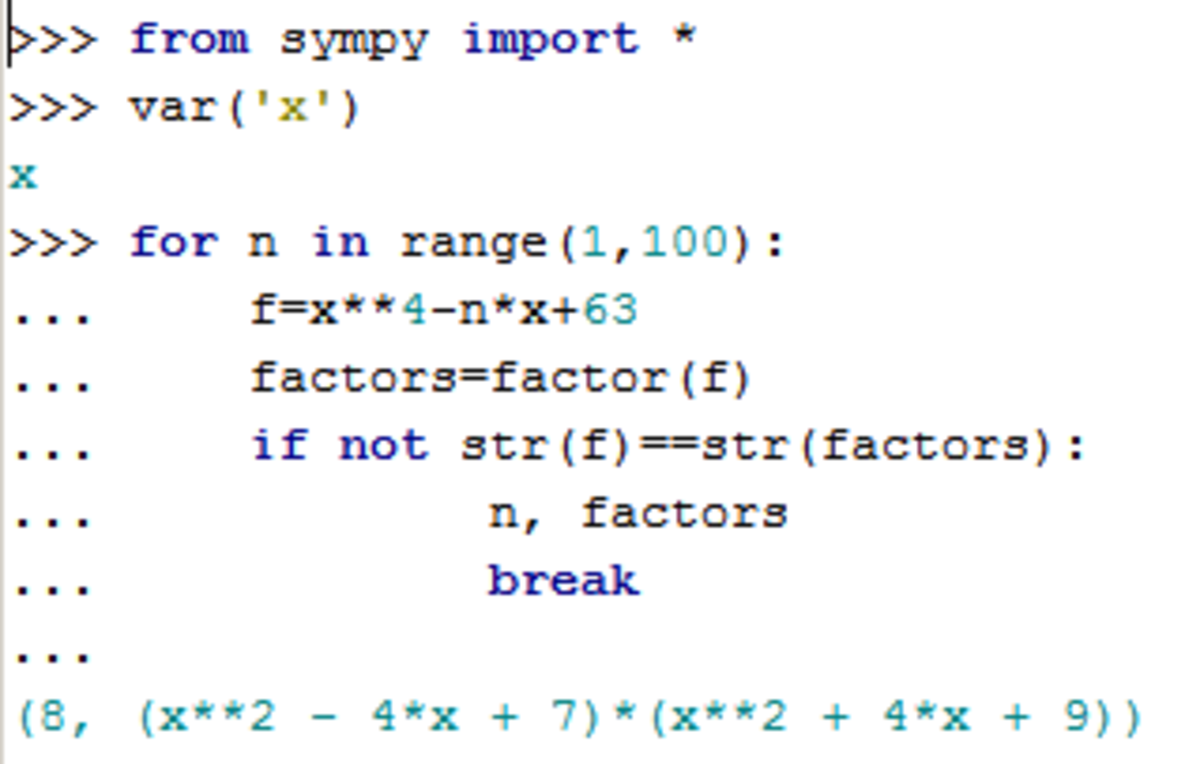An algebra problem by mridul jain
Find the smallest positive integer n with the property that the polynomial can be written as a product of two non-constant polynomials with integer coefficients.
The answer is 8.
This section requires Javascript.
You are seeing this because something didn't load right. We suggest you, (a) try
refreshing the page, (b) enabling javascript if it is disabled on your browser and,
finally, (c)
loading the
non-javascript version of this page
. We're sorry about the hassle.

The quartic polynomial can either be factored into a cubic and linear or 2 quadratics.
Case 1: A cubic factor and a linear factor
Let x 4 − n x + 6 3 = ( x 3 + a x 2 + b x + c ) ( x − a ) for some integers a,b and c. We let the linear factor be x − a to let the coefficient of the x 3 term be 0.
Its expansion is x 4 + ( b − a 2 ) x 2 + ( c − a b ) x − a c .
Comparing coefficients, we get b = a 2 and a c = − 6 3 = − 3 2 ∗ 7
Note that n = c − a b = c − a 3 > 0 , so c is positive and a is negative.
( a , c ) = ( − 1 , 6 3 ) , ( − 3 , 2 1 ) , ( − 7 , 9 ) , ( − 9 , 7 ) , ( − 2 1 , 3 ) , ( − 6 3 , 1 )
The smallest solution of n in this case is 2 1 − ( − 3 ) 3 = 4 8 .
Case 2: Two quadratic factors
Let x 4 − n x + 6 3 = ( x 2 + a x + b ) ( x 2 − a x + c ) for some integers a,b and c. Again, the cubic term cancels out.
Its expansion is x 4 + ( b + c − a 2 ) x 2 + a ( c − b ) x + b c .
Comparing coefficients, we get b + c = a 2 and b c = 6 3 = 3 2 ∗ 7 .
In these two equations, b and c are symmetric, so we only have to look at ( b , c ) = ( 1 , 6 3 ) , ( 3 , 2 1 ) , ( 7 , 9 )
a = ± b + c = ± 4 or ± 8
Hence case 2 yields the smallest solution of n = a ( c − b ) = 4 ( 9 − 7 ) = 8